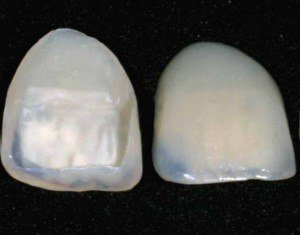Many Brits go abroad for dental treatment every year for treatment such as dental limplants. That's because it's cost-effective and safe, as long as you find a quality and trusted treatment (Find out how here!)
In this article, we'll explain the pros and cons of getting your teeth done abroad, and tell you how to find safe, affordable clinics.
- Find a trustworthy clinic abroad with Dentaly Go
- Cheapest country for dental implants (from UK): Turkday £845 for implant and bridge
- Pros of getting implants abroad: Low price, quality treatment, holiday opportunity
- Cost of implants abroad: Turkey: £845; Thailand: £780; Spain: £1,450
- Precautions: Language/communication, medical equipment, travel planning, aftercare
Dentaly Go is a service that helps you find affordable dental care abroad with clinics that they have carefully selected to meet the highest quality standards. You can submit an enquiry for a free, no-obligation quote right now.
- Hygiene and safety standards
- Quality equipment
- High quality of care
- Skilled medical staff
- English-speaking team
Find out more about how Dentaly Go carefully vets the clinics it partners with.
Request a free quotation
In This Article
- 1 Why get dental implants abroad?
- 2 Types of cheap dental treatment abroad
- 3 What is the cost of dental implants abroad?
- 4 How do you arrange overseas dental work?
- 5 What is the cheapest country for dental implants?
- 6 Getting cheaper dental implants abroad
- 7 Getting veneers abroad
- 8 Potential risks and things to consider before visiting a dentist abroad
- 9 Conclusion
Why get dental implants abroad?


The main reason why so many people are getting dental treatment in other countries is the lower cost. Some of the cheapest dental implants in Europe can be found in countries like Turkey and Hungary.
Patients can save thousands of pounds on cheap dental implants abroad if they need several teeth done, even once the cost of flights and accommodation are factored in!
Why is it cheaper to get dentistry abroad?
The reason why people can get cheap dental implants and other treatments abroad is not because of a lower standard of care. If anything, the quality of service and care provided exceeds UK standards.
It's easy to find clinics in Poland, Spain, and Hungary that are kitted out with state-of-the-art equipment operated by fully trained dental professionals.
In actual fact, dental tourism prices hinge more on the cost of living in each country. When property prices and wages are lower, dentists don't have such high overheads. Lower outgoings mean dentists can offer their services for less.
Some clinics, particularly those located outside of the big cities, offer spa facilities and 4-star hotel accommodation for their patients to enjoy while they recover. And, the package cost is still less than you'd pay in the UK for the treatment alone.


Quality of care


Many patients say they can actually find better dentists abroad than in the UK; the clinics are more efficiently run, and the overall experience is much more pleasant for the patient.
It's possible to book cosmetic dentistry packages which include airport pickup, hotel accommodation, transport with a private driver, and an executive lounge to relax in while you wait (with free wifi, of course). With hardly anything left to arrange yourself, the process is smooth and hassle-free.
This can appeal to people who are slightly nervous about getting dental implants abroad in the first place.
Some people choose to get dental work done in conjunction with a holiday in a more exotic destination like Turkey, Thailand, Mexico or Costa Rica. There's more about this in the section on dental trips further down.
Types of cheap dental treatment abroad
Since the NHS only covers dental work that is medically necessary, people wanting aesthetic dental work must pay for private dental care. The NHS does offer dental implants in some specific cases, but even then the waiting lists are usually a year or more.
The cost of private dentistry in the UK can soon become unaffordable, especially if you need a lot of treatment. Getting cosmetic dentistry abroad can work out more cost-effective for things like:
- Dental implants
- Veneers
- Bridges
- Crowns (porcelain, zirconia or gold)
- Teeth whitening
- Fillings, extractions and root canals
- Certain types of braces
It might not make sense to jump on a plane for a root canal alone. But, with dentists in some countries offering the procedure for significantly less than the cost of NHS-subsidised treatment, it can be worth it.
Implants and veneers, being the most expensive types of dental treatment in the UK, can be fitted for 50-70% less if you travel abroad. This means you save money even taking into account the cost of flights and accommodation. Our cost comparison table further down shows just how much you stand to save by getting treatment such as teeth implants abroad.
What is the cost of dental implants abroad?
Dental implants are one of the best ways to replace missing teeth. They're also one of the most expensive dental procedures, which is why many people choose to travel abroad for dental implant surgery.
Dental treatment abroad can cost as much as 70% less than it does in the UK depending on which country you choose to travel to for treatment.
So, what do dental implants cost abroad?
The short answer is that it depends on the country, the clinic and what type of implant you get. The longer answer involves a lot more factors, including:
- Flights
- Accommodation
- Time off work and any other expenses while you're abroad
- Aftercare when you return to the UK
Some of the best clinics offer complete packages that include travel arrangements and accommodation. They can often help you arrange special deals at nearby hotels that will save you a lot of money in the long run.
One thing that's certain is that if you travel abroad for an implant procedure then it will cost you less than if you stay in the UK for treatment.
For more information on the cost of dental implants abroad, we discuss the average prices in different countries further on in this article.
How do you arrange overseas dental work?
There are two main ways you can arrange your dental treatment overseas; either directly with your chosen clinic, or via a medical travel agency. Agencies take a lot of the risk out of choosing a clinic. This is because they perform certain checks themselves and can help you identify the most suitable clinic for your treatment needs.
Some agencies just provide a clinic referral service, whereas others have experienced representatives to help and advise you throughout the process, even during and after your trip.
Both individual clinics and agencies offer dental tourism packages which may include accommodation, airport pickup, and transport to the clinic. Having all of this arranged for you can help make the process run more smoothly.
If you like the idea of having a specialised dental tourism agency involved to help you choose a clinic, check out Dentaly Go. One of their International Patient Coordinators will guide you through the process and help match you with a suitable clinic.
Before you book dental implants abroad


Whichever way you choose, you should research the company, clinic and dentist responsible for your treatment. If possible, find out what qualifications the dentist has, and verify them with the issuing body.
The country you visit will have its own regulatory bodies for dentistry. It's worth finding out about these so you can check your chosen dentist is operating legitimately.
Internet forums and review sites are great places to get honest opinions from other people who have had the same work done. The clinic may provide its own reviews, but you can't be sure that these are completely impartial. Try to look for reviews from people who are speaking impartially about their experience getting work like dental implants abroad.
How do you get a quotation for dental work abroad?
Usually, dental clinics abroad will begin by asking you for a panoramic dental x-ray. This is so they can assess your oral health condition before you make a trip overseas. Although this doesn't replace a consultation, it gives them enough information to provide a cost estimate for the treatment you need.
Panoramic x-rays are particularly helpful for planning dental implant treatment, since they show the whole mouth and the position of each tooth and its root. Read more about getting panoramic dental x-rays.
During the course of your treatment, your dentist might request additional x-rays, such as periapical or CBCT, specific to the type of treatment you need.
You should still have a consultation and examination with a qualified dentist before receiving a final treatment plan and a quote for work.
Your consultation may take place once you're at the clinic, or you may be referred to a dentist in the UK. If the latter, check that the dentist is a member of the General Dentistry Council. This is a legal requirement for practising in the UK, even if working on behalf of a dentist in Poland, Hungary, or some other country.
Funding your treatment
Although you might save a lot on dental work overseas, you may still need financial assistance to fund your treatment. When visiting a dentist abroad, your main options are a dental loan or a credit card. These both involve borrowing money and then paying it back over a longer period. Your clinic might offer some kind of payment plan, too.
Our dental financing article has more information about the different options.
What is the cheapest country for dental implants?
Dental tourism prices are the main factor that people consider when looking at dental treatment abroad. Many are simply searching for the cheapest country for dental implants abroad. With this in mind, we have put together a cost comparison table so you can get an idea of prices for tooth implants and veneers abroad.
City/country | Flight time from London | Approximate flight price (return) | Cost of single tooth implant and crown | Cost of porcelain veneers |
UK | N/A | N/A | £2,300 | £580 |
Budapest, Hungary | 2 hours 25 minutes | £55 | £1,205 | £280 |
Krakow/Warsaw, Poland | 2 hours 25 minutes | £50 | £1,200 | £280 |
Istanbul/Izmir/Antalya, Turkey | 3 hours 55 minutes | £150 | £845 | £200 |
Various cities, Spain | 2 hours 20 minutes | £55 | £1,450 | £400 |
Phuket, Thailand | 15-16 hours with a connection | £470 | £780 | £200 |
San Jose, Costa Rica | 11 hours 15 minutes | £630 | £740 | £320 |
Mexico City, Mexico | 11 hours 35 minutes | £455 | £730 | £270 |
All prices are indicative only and will vary from one dental clinic to another. Accommodation and insurance not included. | ||||
For a more accurate idea of the cost of cheap dentistry abroad, why not request your free quotation from Dentaly Go? They have hand-picked clinics based on excellent service, high standards and competitive prices.
We look forward to being able to help you save up to 70% on the dental care you need!
Although the prices above make cosmetic dentistry abroad seem quite cheap, there are many other costs involved in the process. These include:
- Initial consultations
- Flights (for each trip required)
- Accommodation
- Someone to accompany you, if necessary
- Time off work
- Insurance
- Aftercare in the UK
Clinics often provide an initial consultation for free and may reimburse your flights if you spend over a certain amount on your treatment. They may also be able to offer preferential rates at nearby hotels.


But the price is not the only thing you should factor into the equation. Later in this article, we cover some of the main risks involved with going abroad for dental work, and other things you should consider before going ahead.
Where are the best places for dental implants in Europe?
There are many countries in Central and Eastern Europe, as well as parts of Asia and South America, that offer low-cost dental treatment. British patients often prefer to visit European countries as the travel time is shorter and visas are easy to arrange.
With cities like Budapest, Krakow, Barcelona and Istanbul, Hungary, Poland, Spain and Turkey are all well-known dental tourism destinations, offering some of the cheapest dental treatment in Europe without compromising on quality.
With low-cost airlines offering direct flights to many major cities in these countries, they are a convenient choice for Brits wanting cheap dentistry abroad. Whether you visit historic Budapest or sunny Antalya, you'll find plenty to do in your free time between dentist visits, too.
We've written separate articles packed with advice and information about visiting each of these countries for dental work. Just click on the images below to read more about the place(s) you're interested in.
Dental trips – get your teeth done on holiday
For some people, travelling to a foreign country for dental work is a great excuse for a holiday. Known as “dental trips” or “dental holidays”, these visits usually take place in exotic countries and allow the patient to come home with a tan as well as nicer teeth.


Patients can use the cost savings from getting dental implants abroad to also enjoy a holiday lasting several weeks, and still save money compared to having the work done in their home country.
Here are some popular destinations to explore:
- Dental implants in Costa Rica
- Cosmetic dentistry in Thailand
- Dental trips to Mexico
- Dental implants in the Philippines
- Dentists in India
- Dental treatment in Warsaw
- Dental veneers in Turkey
If you're considering a dental holiday, do take into account your recovery time. Be realistic about how much time you'll want to spend by the pool if your mouth is swollen and tender. And will the local cuisine taste so good if it has to be pureed?
One solution is to plan a few days of ‘proper' holiday time before your treatment, but be sure to allow more than enough time for your recovery before you fly home. If you're having veneers fitted, the time it takes to have them made can present a good opportunity for sightseeing or relaxing.
Getting cheaper dental implants abroad
With implants costing upwards of £2,300 per tooth in the UK, it's no wonder that people are searching for cheap dental implants abroad. Getting full-mouth dental implants abroad can massively help to reduce someone's dental bills and financial strain.
The cost of your dental implants, wherever you go, will vary depending on a number of factors. This includes the brand of implant and materials used, the type of anaesthesia used, and your overall oral health. You may also need preparatory surgery such as a sinus lift or bone graft.
Be sure to research the brand your dentist is proposing to use, and check that it meets the same quality standards as those in the UK (if it's one available in the UK – even better).
Implantology involves drilling into the jaw bone, inserting the implant, and then attaching a crown (replacement tooth) via an abutment.
With traditional implants, an initial surgery is done to place the implant, then the gum is allowed to heal over while it fuses with the surrounding bone. 4-6 months later, the gum is re-opened and abutments and crowns are fitted to complete the procedure. We have a separate article that covers the dental implant process in much more detail.
If you have teeth implants abroad using this method, you'll need to allow 2-4 days for your first visit including your consultation and initial assessment. The second trip will also take several days, and you may need a third visit to have the permanent crown(s) fitted.
‘Teeth in a day' with All-on-4 implants
A popular option for patients wanting full mouth dental implants abroad is All-on-4 implants. This solution suits people who have lost all their teeth or whose dentures are failing.
The name comes from the idea that all the new teeth are supported on just four implants per jaw. Some cases might require 6 implants in the maxilla, in which the procedure is called All-on-6 treatment. This makes the process quicker and cheaper than traditional treatments which require 8-10 implants in each jaw.
But the main benefit of this treatment is it offers ‘teeth in a day'. Whereas some treatment implants are drilled into the bone during surgery and then left for 4-6 months to fuse with the bone before abutments and crowns are fitted, All-on-4 implant treatment allows patients to walk away the same day with temporary teeth/dentures fitted to their implants.
How do All-on-4 implants work?
A temporary bridge or denture is attached to each arch as part of the initial treatment, and after 6-9 months this is replaced with a permanent prosthesis. This means that patients needn't suffer the embarrassment and inconvenience of living with no teeth for several months.
It also reduces the number of trips needed for full mouth dental implants abroad from three to two. Read more about the pros and cons of All-on-4 teeth implants in our full guide.
Immediate implants are also available in cases where one or several teeth are to be extracted and the implants are placed at the same visit immediately after extraction to reduce the number of visits to the clinic. However, this option is usually more expensive than the traditional method.
Are All-on-4 implants painful?
It's normal to experience some pain and swelling after having teeth implants. Your clinic should provide you with medication to manage this, but you may not feel like travelling for 2-3 days after the surgery.
It can be a good idea to stay in your chosen city for a few days (even if your dentist doesn't recommend this), as this will allow time to check for any complications.
What do All-on-4 implants cost abroad?
All-on-4 implants abroad cost between £4,000 and £6,000 per jaw in countries like Turkey and Hungary. This is compared to upwards of £10,000 per jaw on average in the UK, so it's safe to say you can save thousands of pounds by getting All-on-4 implants abroad.
However, it's difficult to give an exact price because the cost of this treatment can vary so much depending on the current condition of your mouth and jawbone, and from dentist to dentist.
Turkey, Hungary and Poland are some of the cheapest places to get teeth implants, including implant dentures. Places like Spain may cost a little more but perhaps offer a more familiar setting.
Getting veneers abroad
Another popular treatment for overseas dental patients is veneers. These thin coverings are made to measure and are applied to each tooth individually to improve the aesthetic appearance. After your initial consultation, your dentist will take measurements of your teeth and create a plan for your veneers.


If you're getting traditional porcelain veneers abroad you'll probably have to stay for around a week while they're made – but it may take up to two weeks if you're having a large number of veneers fitted. However, newer technologies make it possible for veneers and crowns to be created while you wait. This convenience comes at an extra cost, though.
Composite veneers are moulded by the dentist as they are applied and can be done in a day, but the downside is that this material doesn't last as long.
So, which type of veneer is best for you? If you need them to last more than 5-10 years it might be worth paying the extra fee (and taking the extra time) for porcelain. Read more about the options in our full guide to teeth veneers.
Potential risks and things to consider before visiting a dentist abroad
Getting dental work abroad is a big decision, and there are many things to consider when deciding if it's right for you. Below you can read about some potential risks and other things to check before you commit. Rest assured that if you select one of our recommended clinics, we have already conducted extensive checks to ensure they meet our strict criteria for quality and service.
Communication problems
The language barrier is an obvious factor to consider. Although many foreign dentists speak great English, others do not. Should you experience any complications during your treatment, the last thing you want is to have trouble understanding what's going on.
But communication problems can run deeper than just the language. When you have a complex procedure like implants or veneers abroad, you will probably want your dentist to:
- Prepare you for the treatment
- Tell you what to expect during treatment
- Explain common side effects or discomfort you'll likely experience afterwards
- Show you how to care for your new teeth
Unfortunately, some dental tourists have experienced issues with dentists who didn't communicate enough about these things. The ‘in-and-out' approach does little to put you at ease, especially if you're already nervous about receiving dental work abroad.
Immediate aftercare
Thoroughly research the procedure you're having so you know what kind of aftercare will be required. Questions to ask the company organising your treatment include:
- Will I need to stay overnight in a clinic or hospital?
- If I stay in a hotel after that, will any special measures need to be taken?
- What pain or discomfort will I experience after the procedure, and how long does it usually last?
- Will I be able to care for myself during my recovery?
- How long after the procedure will I be fit to travel home?
- What if I'm unhappy with the results?
Dealing with complications


Consider taking somebody with you on your trip – not only to help look after you immediately after your treatment but to step in and help if there are any complications.
Although relatively rare, possible complications with treatments like implants and veneers include:
- Infection in the area treated
- Damage to other teeth
- Nerve damage, causing tingling or numbness in your mouth
- Sinus problems (from implants in the upper jaw)
- Increased sensitivity in teeth (from the enamel removed to fit veneers)
Speak to your clinic or agency to find out what support they would offer in such a situation.
Also, check what would happen if you experience problems after returning home. How long is your treatment guaranteed for? Would you have to travel back to the dental clinic abroad to receive further treatment, or does the company have a clinic in the UK that you could use? Would the cost of this be covered by your package or would you have to foot the bill?
Ongoing care
Treatments like implants will require regular follow-up care for the rest of your life. Because there are so many different systems used for implants (more than 50), it can be difficult for a UK dentist to provide this care without having all of the documentation related to your treatment.
When choosing an overseas dentist, ask what systems they use for treatment and what documentation they provide. If they use a brand available in the UK, that should make your follow-up care more straightforward. Ask whether they can provide your medical notes in English so your dentist back home has a full record of your procedure.
If there is certain scheduled work required after your treatment, find out where in the UK you can have this done and whether it is included in the cost of your package.
Insurance
Most travel insurance policies only cover you for emergency dental care – not procedures you choose to have (known as “elective treatment”). This means that if something goes wrong during a planned visit to a dental clinic abroad and you require additional care or have to postpone your flights, you could end up heavily out of pocket.
Your chosen dental clinic abroad may offer its own insurance policy as part of your package. Alternatively, you can purchase your own insurance policy from a company that covers medical travel specifically, like Medical Travel Shield.


It's also a good idea to speak to your travel insurance company to see how your policy will be affected.
If you have a dental insurance policy in the UK, find out whether that will cover you for any follow-up treatment from work carried out overseas (routine or emergency).
How do you find a reputable dental clinic abroad?
Find a clinic abroad with Dentaly Go. All of the clinics they recommend are either ISO9001 or TEMOS certified, and they meet a number of other strict quality criteria.
Once you request a free quote, you will be allocated a dedicated International Patient Coordinator who will match you with suitable clinics and arrange personal quotations for you.
Request a free quotation now

If you choose to find a clinic on your own, make sure to do plenty of research before visiting a dentist abroad. This should include the following:
- Verifying the qualifications and certification of the dentist(s) you're considering
- Checking online forums to find dental tourism reviews and feedback from other patients who have used the same clinic and dentist
- Understanding the procedure you're having and what your recovery will involve
If possible, arrange to speak directly to your chosen dentist before you commit to getting dental implants abroad, or any other dental work. This will let you gauge their level of English and will also give you a chance to ask any questions you have.
You might want to ask how many times they have carried out this particular procedure, what their success rates are, and what risks are associated with the work. Don't be afraid to ask to see samples of their work; they may even be able to put you in touch with a past patient who has undergone the same work that you're planning.
What to check when you arrive at an overseas dental clinic
When you arrive at the clinic, you can check for certain things that indicate the clinic follows basic hygiene best practices. Dental clinicians should wear masks and sterile gloves, and all equipment should come from sterile packaging.
You may even ask to see how they sterilise their equipment. If the clinic is ISO 9001 or TEMOS certified, this shows they operate to a certain level of quality management standards.
You should also have a consultation with your own dentist at home. He or she knows your dental history and can advise you on the work you're planning to have done abroad. In addition, make sure you understand how much he or she will be involved in your aftercare.
Conclusion
If you're facing a hefty dental bill and you're looking at ways to reduce your costs, consider dental tourism. Join the growing number of Brits travelling for work like dental implants abroad. Getting cheap dentistry abroad could save hundreds or thousands of pounds.
There are plenty of countries in Europe, Asia, and the Americas that offer high-quality dental care at prices much lower than private dentists in the UK. You'll find some of the cheapest dental implants in Europe in places like Hungary, Spain and Turkey, for example.
However, there are certain drawbacks to getting dental care overseas which means it isn't right for everyone.
Doing your research and getting as much advice as possible beforehand means you can minimise the risk of complications and leave you feeling more confident about your dental treatment abroad and the prices you pay.


NHS. https://www.nhs.uk/using-the-nhs/healthcare-abroad/going-abroad-for-treatment/treatment-abroad-checklist/ Consulted 14th November 2022.
The General Dental Council. https://www.gdc-uk.org/ Consulted 14th November 2022.









